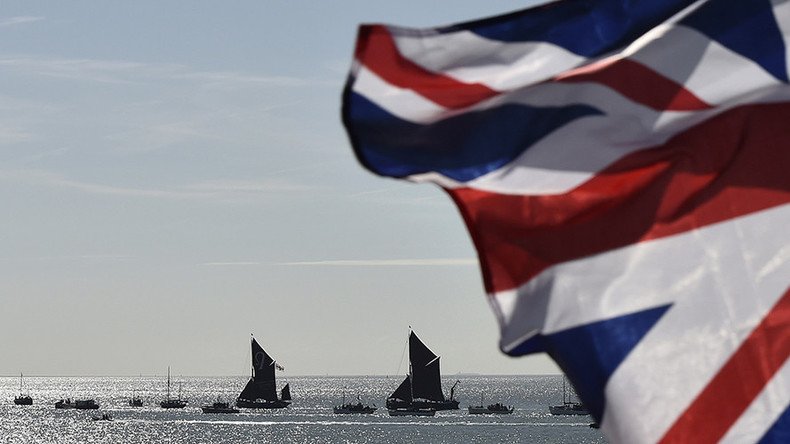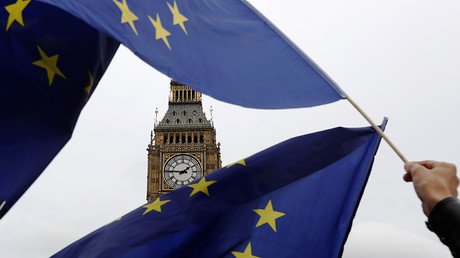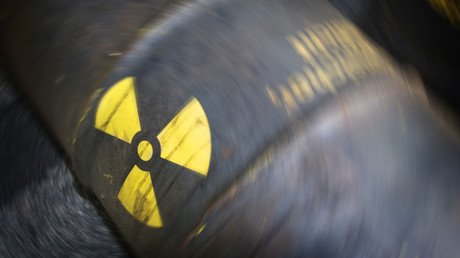Remembering the history of Dunkirk in the shadow of Brexit

A shallow rendering of history might lead you to think that the release of Christopher Nolan’s latest movie, Dunkirk, could not have come at a better time for the Brexit or bust brigade in Britain.
Think about it: just as it has never been more apparent that Brexit is akin to jumping off the edge of a cliff without a parachute — an act of unadorned political and economic self-harm — along comes this epic dramatization of one of the most revered events in British military history to remind the British people of how they are never at their strongest or best than when standing alone in the face of a foreign enemy on the other side of the English Channel.
Yet, in truth, it is those who are opposed to Brexit that have proper claim on the story of Dunkirk as proof of the righteousness of their cause.
As a story, Dunkirk ticks all the boxes: courage under fire, survival in the face of overwhelming odds, an entire country pulling together against the unfiltered evil and bestiality of fascism, and so on. The unsung heroes of Dunkirk were the soldiers condemned to man the perimeter and fight off German attacks on the approaches to the beach, along with the fighter pilots who, though maligned by many of the 400,000 stranded troops as the Luftwaffe caused havoc, prevented the slaughter from the air being far worse than it was, engaging German bombers and fighters further inland before they were able to reach the men on the beach.
Perhaps the most enduring legend of Dunkirk surrounds the doughty fishermen and part time sailors who set sail across the Channel in all manner of small ships and boats to aid in the evacuation, thus going into the annals of British heroism like latter day Arthurian knights.
The reality of Dunkirk is that it confirmed the genius of Winston Churchill. With sublime oratory Britain’s wartime prime minister succeeded in turning one of the most humiliating defeats ever suffered by British armed forces — one that has only ever been eclipsed, and by coincidence in the same war, by the fall of Singapore in 1943 — into a victory. His ‘Fight Them on the Beaches’ speech after the fall of France, which ended in the mass evacuation of British and French troops from Dunkirk, is part of the nation’s folklore.
In the speech Churchill delivers a soaring paean to patriotism and virtue in the glory of arms, the kind for which he is justly famous. Listening to the speech today reminds us that he is Britain’s Cicero, a statesman who for those on the right of the political spectrum still today represents the country’s moral centre and core, its sense of self in good times and bad.
But none of this can gainsay the fact that Dunkirk was, in military terms, a stunning defeat for an under-equipped and ill-prepared British Expeditionary Force that had been sent across the Channel in the anticipation that in conjunction with its French ally and counterpart, it would deliver the Germans a crushing defeat when the offensive came. The war diaries of British Lieutenant-General Alan Brooke, who organized and led the retreat of the BEF from Belgium to Dunkirk in that summer of 1940, make sobering reading.
“From the point of view of equipment,” Brookewrites, “the situation was still lamentable, and we were still deficient in all the vital armaments of a modern army.” He goes on, “There was little comfort to be had from our Allies. I had by now few illusions as to the fighting efficiency of the French. The Belgians still remained to be seen, but what I had heard about them was not promising.”
On the other side of the Battle of France in the summer of 1940 was superb German military leadership, tactics, organization and equipment. The audacity of the German plan involved sucking the Allies into believing the main thrust of the offensive into France was being made through northern Belgium in a re-run of the Schlieffen Plan of World War I. The Germans succeeded in drawing Allied forces west to meet the feint through northern Belgium, while punching into central France through the seemingly impassable Ardennes Forest in southern Belgium with their Panzers. Wasting no time, they crossed the River Meuse, before proceeding in a wide encirclement towards the northern France to cut off the bulk of French and Allied forces against the coast.
The daring of General Erich von Manstein’s plan has ensured him a place in military history. The Germans were also blessed with the talents of Generals Heinz Guderian and Erwin Rommel, whose brilliance and audacity when it came to the use of tanks in mass armoured formations was key to the astounding success of the plan’s implementation. In just six weeks their Panzers succeeded in rolling up what French resistance they met during a race to the coast of northern France that still stands as a breathtaking feat of arms.
What ensued afterwards stands as one of the most grievous military blunders of the war, of which there were more than one. With the entire British army stranded on the beach at Dunkirk, Hitler inexplicably ordered his Panzers to halt and allow the Luftwaffe to take over the job of destroying what remained of the French Army along with the entire British Expeditionary Force, as they lay stranded on the beaches. Their destruction or surrender would have left Britain defenceless with no choice other than to seek peace terms. Seen in this light, the successful evacuation of 330,000 British and French troops at Dunkirk was a seminal event not only in the war but also in the history of Europe.
The irony is that from rubble of Hitler’s defeated dream of unifying Europe under the iron heel of fascist totalitarianism emerged the forerunner of today’s European Union. As the French businessman and diplomat Jean Monnet, one of the visionaries of European unity, put it:
“There will be no peace in Europe if the States rebuild themselves on the basis of national sovereignty, with its implications of prestige politics and economic protection…The countries of Europe are not strong enough individually to be able to guarantee prosperity and social development for their people. The States of Europe must therefore form a federation or a European entity that would make them into a common economic unit.”
Isn’t that something? Britain’s ‘finest hour’, when in 1940 it stood alone against the Nazi war machine, helped pave the way for the very European unity that the Brexit or bust brigade are intent on destroying today in the name of progress.
As for Winston Churchill, he also ended the war a convert to the cause of European unity. In a speech he gave after the war, the man whose legacy burns like a beacon in the hearts of the Brexit or bust brigade, opined, “The structure of the United States of Europe, if well and truly built, will be such as to make the material strength of a single state less important. Small nations will count as much as large ones and gain their honour by their contribution to the common cause.”
If Winston Churchill was alive today he would be a champion not of Brexit but the EU.
The statements, views and opinions expressed in this column are solely those of the author and do not necessarily represent those of RT.














